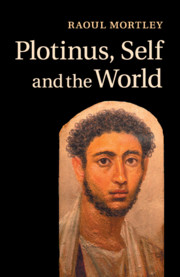Book contents
Conclusion
Published online by Cambridge University Press: 05 October 2014
Summary
We have asked the speculative question of why Plotinus failed to write a history of himself, whereas Augustine, the Christian writer, did do so in the form of his own autobiography, the Confessions. Augustine was a reader of Plotinus; both had a robust view of the individual self, and both had a respect for the physical world, and a view of the self as part of it (as we have argued). We set aside Porphyry's remarks about Plotinus seeming to be ashamed of living in the flesh as being psychological commentary, and we have looked at Plotinus’ actual philosophy. Plotinus the philosopher rescues the physical world from the onslaught of the Gnostics.
For Plotinus, the memory also plays a positive role, just as with Augustine, who exclaims over its majestic powers. But in the end for Plotinus the memory is appropriate only to certain phases of being and certain levels of reality, and its value comes from the sphere in which it operates. It is only activated when the soul moves away from perfection. The transcending of the self is the ultimate goal and at that point neither memory, nor thought, nor even self-knowledge, is relevant any more, and so forgetting becomes the goal. ‘The good soul is forgetful.’ For the Christian writer, the reification of human progress and the historicisation of the church meant that this route was impossible, despite the closeness of his view to that of Plotinus. The spiritual discipline lay in remembering.
Information
- Type
- Chapter
- Information
- Plotinus, Self and the World , pp. 138 - 141Publisher: Cambridge University PressPrint publication year: 2013
